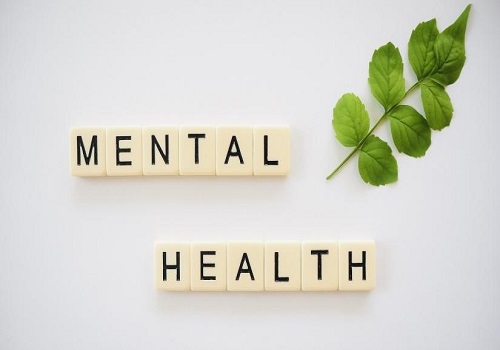Journaling for mental wellness

Follow us Now on Telegram ! Get daily 10 - 12 important updates on Business, Finance and Investment. Join our Telegram Channel
In a world dominated by technology, the joy of putting pen to paper is almost entirely lost. The older we get, the larger the gap between writing things down and digitization becomes. While the global pandemic cast a heavy shadow on many, it also had its advantages -- one of which was how people turned inwards to find serenity, strength, and peace.
More light was shed on mental health, its importance, and methods that helped people achieve that. Many turned to pursue their creative interests (including writing, drawing, and painting) far more seriously than they had ever done before, leveraging pens, paper, and stationery. Similarly, journaling was one of the main elements that supported people through those testing times.
Marking the occasion of Mental Health Day, the importance of putting pen to paper, particularly through journaling, is important to an individual's well-being.
Five key benefits of journaling:
* Helps manage stress and anxiety: Keeping a journal often helps us put our thoughts in order and reduce the chaos of everyday life. Journaling not only helps us relive memories and experiences, but provides us with a platform to get to know ourselves better and reveal our deepest fears, passion points, thoughts, and feelings. This all helps us remain balanced, focused, and controlled. Journaling is like talking to a best friend but better as it digs deep into our souls. To make journaling more enjoyable, invest in colourful stationery to lift your mood, and get your creative juices going.
* Helps draw on and learn from personal experiences: It is scientifically proven that writing using pen and paper helps retain information better than when using mobile phones or tablets. Writing down affirmations, achievements, and learnings helps us take in information, and learn from the past. It also helps look at experiences through different approaches to ensure that we make better and informed decisions.
* Improves mood and enhances sleep: Generations, including millennials and Gen Z, work very differently from previous groups. They have shorter attention spans and store bits and pieces of information. Their minds resemble a computer with various open tabs, which makes shutting their brain down challenging. Journaling encourages people to let things out keeping them sane and uplifted and making a good night's sleep possible. Colour coding a journal enhances the experience even further as it would help process and get a deeper understanding of feelings.
* Boosts creativity: Journaling sets the brain free as it provides us with an opportunity to doodle, draw, write, illustrate, and colour in a personal space without any judgment. Journaling allows people to explore uncharted thoughts and emotions. Writing gets thoughts out and clears the mind for fresh ideas, helping our minds wander and dream -- all the while recharging its creative cells.
* Helps build a stronger immune system and a higher IQ: Several studies around the world show that regular journaling leads to sound sleep, a stronger immune system and eventually a higher IQ. James W. Pennebaker, a social psychologist at the University of Texas at Austin, who is considered the pioneer of writing therapy,
said, "Labelling emotions and acknowledging traumatic events have a known positive effect on people. When we do that, our working memory improves, since our brains are freed from the enormously taxing job of processing that experience, and we sleep better, indeed improving our immune system." According to research published in Frontiers in Behavioral Neuroscience, 'paper is more advanced and useful compared to electronic documents because paper contains more one-of-a-kind information for stronger memory recall'.
Use this year's Mental Health Day to start a new habit that would benefit you positively and stimulate your brain in a way that digital communication doesn't. The power of writing is powerful and unmatched -- continue to express yourself in an impactful manner to ensure a better and healthy you.












 320-x-100_uti_gold.jpg" alt="Advertisement">
320-x-100_uti_gold.jpg" alt="Advertisement">












